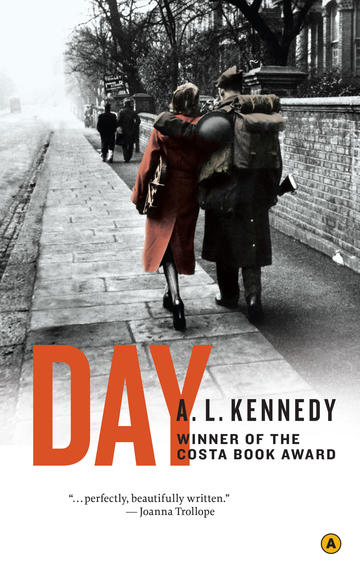 Enlarge Cover
Enlarge Cover
In 1939, Alfred Day had wanted war. And when he got it, he found purpose in its turmoil: he found his proper role as tail-gunner in a Lancaster bomber; he found the wild, dark fellowship of his crew; and -- most extraordinary of all -- he found Joyce, a woman to love. But now, that's all gone: the war took it away. And maybe the war has taken him away, too.
Before Hitler and the bombs, Alfred was a boy in Staffordshire, helpless to defend his mother and resist his abusive father. The RAF gave him order, skills, another family, a way to be a man. It taught him how to burn through lifetimes on night ops and brief, sweet leaves, surviving. But it didn't prepare him for capture, for prison camp and chaos as the war wound down. And it certainly didn't prepare him for an empty peace. So, in 1949, Alfred winds back time to see where he lost himself as an extra in a POW film -- and begins to do what he's never dared -- to remember.
In Day, A. L. Kennedy has crafted a superb novel about the brutal simplicities of war and the complexities of human emotion. Above all, Day is wonderful storytelling: the freight of history and humanity carried effortlessly by the beauty of the writing.


